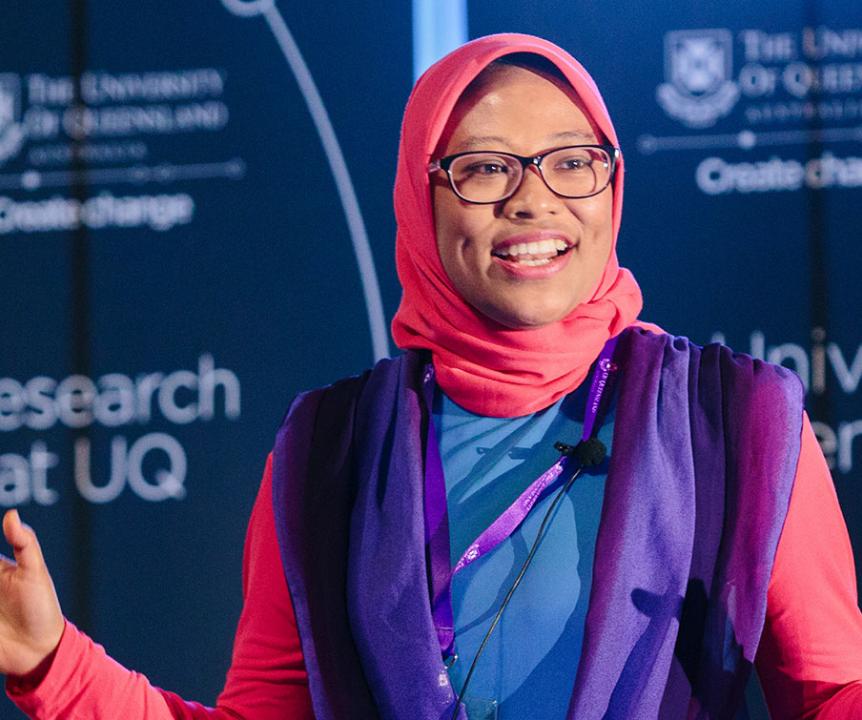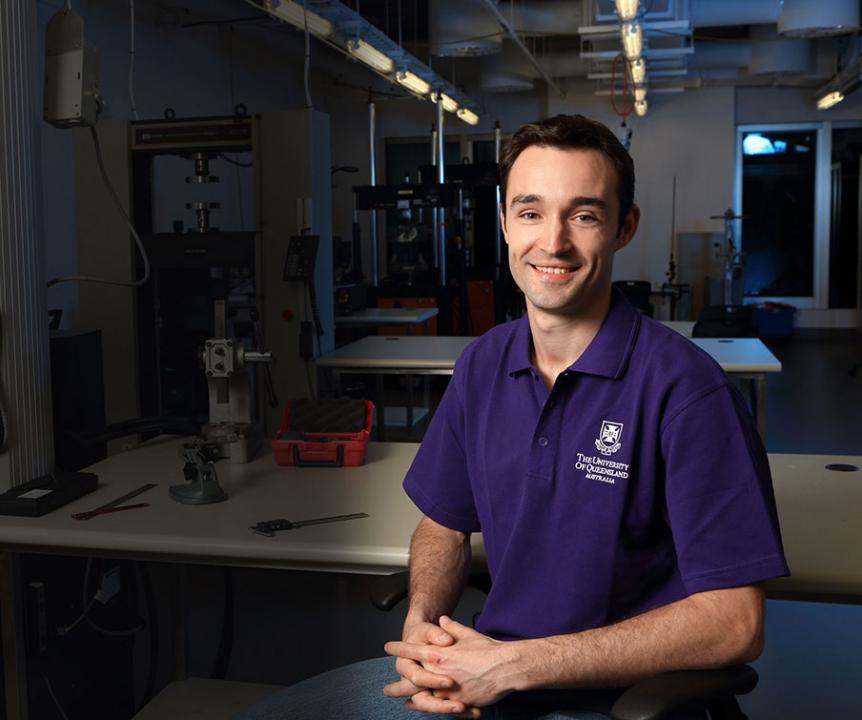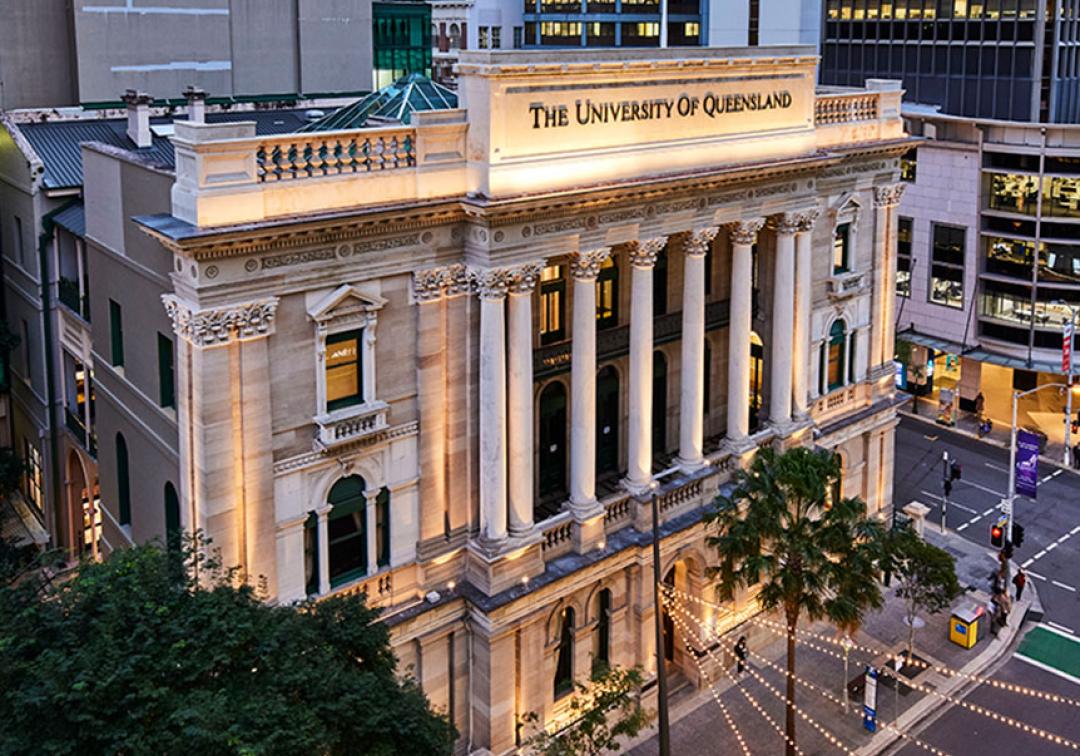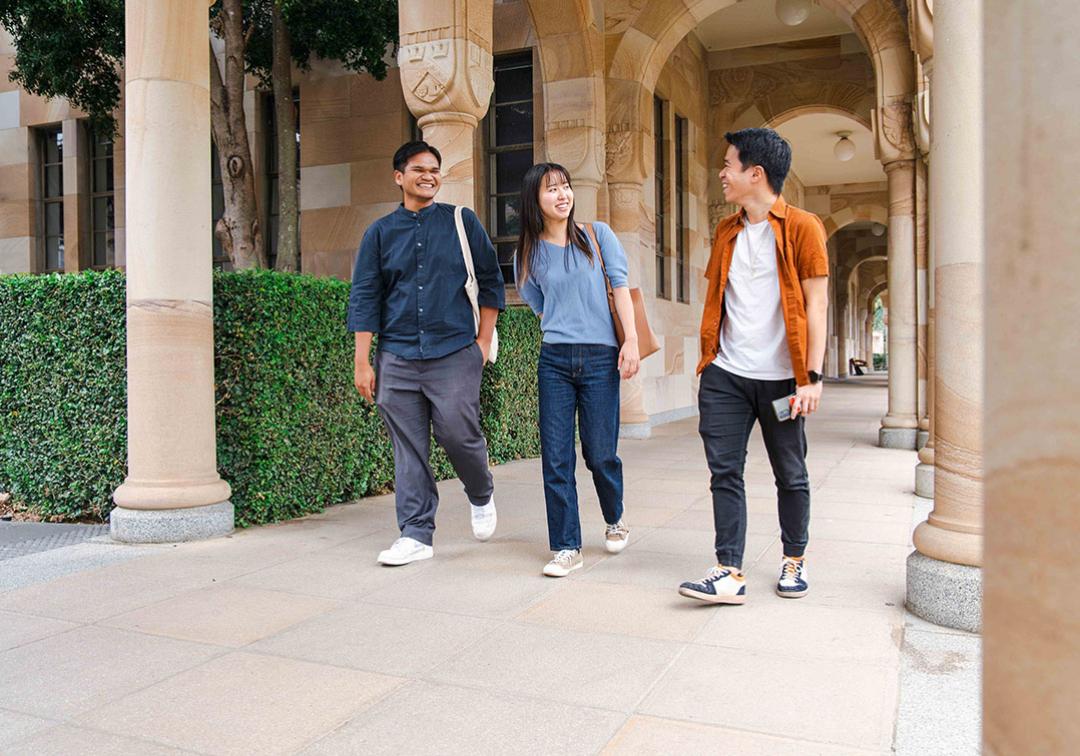
- Doing a PhD in Australia | 2024 Guide
- International

Key Takeways
- Australia offers high-quality PhD programs : With 21 of its universities in the top 300 according to the Times Higher Education Rankings in 2024, Australia provides excellent educational opportunities.
- Understanding the PhD structure is crucial : The PhD process in Australia involves independent research over three years for full-time students, with assessment usually based on the quality of the final thesis.
- Financial planning is necessary : The costs of tuition and living in Australia can be high, but numerous scholarships and financial aid options are available to help offset these expenses.
- The application process involves key steps : Finding a potential PhD supervisor, providing academic qualifications, a research proposal, and references are all part of the application process.
- Opportunities for working while studying : Students are allowed to work up to 40 hours per fortnight during term time, offering the chance to earn extra money for living expenses.
- Australia offers a rich cultural experience : Besides the academic opportunities, international students can enjoy Australia’s vibrant city life, diverse cultural fabric, and stunning natural landscapes.
- Job opportunities and immigration prospects are promising post-PhD : Australia offers numerous opportunities for PhD graduates with different types of visas available, allowing graduates to live and work in Australia for at least four years.
Introduction to Studying PhD in Australia
Are you an international student intrigued by the thought of traversing academic frontiers in the land down under? You are in good company. In 2024, Australia has become a beacon for prospective scholars due to its assortment of excellent PhD programs offered by esteemed Australian universities . This surge of interest isn’t surprising given that 15 of Australia’s universities rank in the global top 250, showcasing a commitment to higher education of exceptional quality.
In fact, the number of PhD completions in Australia has been growing over the past two decades , from about 4,000 to about 10,000 per year!
A PhD in Australia offers not only top-quality education but also a unique academic experience. For instance, Australian doctorates are often assessed without the traditional viva voce—an oral examination—promoting more emphasis on research outcomes. Moreover, Australia offers unique PhD opportunities in areas like marine biology and environmental science, thanks to its diverse ecosystem and landscape. Truly, Australia is the academic adventurer’s paradise.
Choosing a University in Australia for Your PhD
With 43 publicly funded universities and a robust collection of Technical and Further Education (TAFE) institutions, you’ll find no shortage of places to earn your PhD in Australia. Key universities include:
- University of Melbourne
- University of Sydney
- Australian National University
- University of Queensland
- Monash University
These universities contribute to the staggering 21 Australian universities in the top 300, according to the latest Times Higher Education Rankings in 2024.
Several university associations such as The Group of Eight, Innovative Research Universities, Regional Universities Network, and Australian Technology Network further contribute to the strength of Australia’s higher education landscape. When it comes to making a choice of university , it is important to consider factors such as the institution’s reputation, subject choice, university structure, cost of living, and cultural experience to ensure a successful and fulfilling study experience.
Understanding the PhD Structure and Duration
The structure of a PhD degree in Australia typically involves an independent doctoral thesis derived from independent research . A full-time PhD in Australia usually takes three years to complete, while part-time studies may span up to six years, allowing for part-time jobs or other commitments.
Uniquely, Australian PhDs do not usually involve a viva voce. Instead, the final work is sent to external examiners who assess the merit and contributions of your research. Thus, the assessment is based on the quality of your thesis and literature review rather than an in-person examination. By factoring in the required hours per week for research, teaching commitments, and university coursework, prospective scholars can adequately plan their time in this doctoral program .
Cost of Undertaking a PhD in Australia
Pursuing a PhD in Australia involves both tuition fees and living expenses . The cost of a PhD for international students is estimated to be between AUD $20,000-50,000 per year. While domestic students (Australians and New Zealanders) pay significantly lower fees, international students must anticipate this financial commitment when considering a PhD in Australia .
Specifically in regards to international students and STEM PhDs, the following should help give you an indication of the type of costs to expect:
- University of Melbourne : The total course tuition fee for a PhD in Science at the University of Melbourne is approximately AUD 63,584 per year. However, international students may also receive Overseas Student Health Cover and a tuition fee offset.
- University of Sydney : The total tuition fee for a PhD in STEM at the University of Sydney is approximately AUD 51,000 per year.
- Australian National University : The total tuition fee for a PhD in STEM at the Australian National University is approximately AUD 52,100 per year.
- University of Queensland : The total tuition fee for a PhD in STEM at the University of Queensland is approximately AUD 48,040 per year. In addition, HDR students are required to pay a student services and amenities fee of AUD 78 for full-time students and AUD 59 for part-time students.
In terms of cost of living , Australia is one of the most expensive places globally, surpassing both the UK and the USA. The living costs are estimated to be at least AUD $21,041 per year. This includes accommodation costs —potentially over AUD $2,000/month for an apartment in a city centre like Sydney—along with the cost of food (typically AUD $500/month) and travel expenses ranging between AUD 90-325 per week. The Australia Tuition costs coupled with these living expenses necessitate careful financial planning for prospective PhD students.
Scholarships and Financial Aid for PhD Students
Studying for a PhD in Australia need not break the bank. There are numerous PhD scholarships and other types of financial aid available to help offset costs. Universities and the Australian government offer generous funding options . Additionally, potential scholarships are available from diverse sources including university scholarships, government incentives, and specific programs like the Research Training Program .
It’s important to note that eligibility for financial aid and scholarships can depend on your origin, status, and place of study. For example, international students from specific regions might be eligible for the prestigious Australia Awards Scholarships . Also, the University of Sydney has a specific Sydney International Scholarship scheme for talented overseas students.
Due to the competition for these funds, it’s wise to research a broad range of scholarships and apply for more than you think you might need. Remember, every bit of aid you receive lessens the financial load, allowing you to focus more on your research.
The Application Process for a PhD in Australia
Applying for a PhD in Australia involves several key steps and meeting various eligibility criteria. First, you’ll want to reach out to a potential supervisor . This should be a lead researcher of a project or research group that aligns with your interests. You will need an expression of interest from this supervisor to begin your formal application .
The application process usually requires evidence of qualifications, a research proposal, a personal statement, and academic/professional references. Entry requirements typically include a Bachelor’s and Master’s honours degree in a relevant subject. For UK/Ireland applicants, the free Study Options service is available to help navigate this process.
Most applications include a possible interview via video-conferencing. While there is no strict application deadline , it is advisable to apply at least four months before your intended start date. The admission process can be completed through the university website or via agents in your home country.
Every university has its own application process, so carefully check the requirements. Your application form should include academic records and personal documents, and some universities may require confirmation of your eligibility to enter Australia. Lastly, understand the fee structure and be prepared to pay an application processing fee (ranging from AU $50 to AU $150).
The PhD Student Visa Process in Australia
To study in Australia, you will need a Student Visa ( subclass 500 ). Visa requirements include being enrolled in full-time study, having confirmation of enrolment, and having sufficient financial resources (AUD $21,041 per year). English language requirements are specific (IELTS – 6.5, TOEFL – 85, CAE – 176, PTE – 61), and you will need health insurance that meets Overseas Student Health Cover guidelines.
The Student Visa cost is AUD $650, with 75% of applications processed within 25 days. After graduation, the Temporary Graduate Visa (subclass 485) allows PhD graduates to stay for up to four years, extending to six years from July 2023.
Following Covid-19, Australian student visa requirements were relaxed until 30 June 2023, with work hours for overseas students extended to 48 per fortnight during semesters. Additionally, over 70 types of visa exist, including working and skilled visa categories and employer-sponsored visas for international students about to graduate.
Working While Studying: Opportunities and Regulations
While in Australia as a student, it’s not all about studying. You also have the opportunity to work part-time. Students can work up to 40 hours per fortnight during term time, and unlimited hours during holiday periods. These regulations offer you a chance to gain work experience, meet new people, and earn some extra money for your living expenses. Remember to balance your part-time jobs with your study commitments, ensuring you’re successful both at work and in your studies.
Life as an International PhD Student in Australia
In Australia, your journey as an international student does not confine to the corners of an Australian university campus. You’ll experience a vibrant city life from the bustling city centres of top student hubs, like Melbourne and Sydney, to quieter yet enriching atmospheres of Brisbane, Adelaide, Perth, Canberra, and Gold Coast – all featuring in the top 100 student cities globally.
Housing is one of the foremost aspects you would think about, right? Australia offers varied options including university-provided accommodation, managed student accommodation, and private renting or leasing. Universities and government-run services extend their hands with student support services dedicated to international students, ensuring that you never feel left out.
Moreover, student organisations represent international students at state, city, and university levels. You’re not just a PhD student in Australia, but a part of the diverse cultural fabric.
Take your time to explore Australia’s urban attractions like the captivating Sydney Harbour, Melbourne’s cultural centres, stunning Gold Coast beaches, and the enriching museums of Brisbane. Intrigued by history? Perth’s historical sites in Western Australia are a must-visit!
Remember, South Australia and other parts of the country can be significantly distant, often requiring internal flights. However, cities are usually walkable with efficient local transit systems.
Australian Culture for International PhD Students
Australia’s rich culture reflects a beautiful blend of Western traditions, indigenous heritage, and unique geography. As an English speaking country , Australia offers an environment where international students can easily adapt. Its reputation for stunning natural landscapes and diverse wildlife offers a tranquil escape from rigorous academic routines. From the Great Barrier Reef to the vast Outback, there’s a lot to explore!
If you need some inspiration, then the following spots are known to be popular amongst both international and domestic students:
- The Great Barrier Reef
- Uluru-Kata Tjuta National Park
- Blue Mountains National Park
- The Twelve Apostles
- Kakadu National Park
Student Services and Support Mechanisms in Australian Universities
Living away from home can be challenging. Thus, Australian universities provide a vast array of student support services dedicated to international students . This ranges from academic assistance, mental health services to career guidance. Government-run services also play a crucial role in ensuring your well-being.
Several student organisations represent overseas students on different levels, fighting for your rights and ensuring a conducive academic environment.
Post-PhD Life: Job Opportunities and Immigration Prospects
After obtaining your postgraduate degree , what’s next? Australia offers numerous opportunities and career paths for PhD graduates. The post-study graduate visas allow you to live and work in Australia for at least four years.
Job opportunities, though concentrated in cities, are varied. They range across businesses, government, and the nonprofit sector – offering you a chance to use your academic career knowledge and gain professional experience . However, keep in mind that immigration rules can limit opportunities unless qualifications match identified skill shortages.
Conclusion: Is Undertaking a PhD in Australia Worth it?
The journey of undertaking a PhD in Australia can indeed be challenging yet enriching. It is not just about the affordable Australia Tuition fees or the potential to study under a distinguished faculty. It’s about personalising your applications, standing out with your academic history, glowing letters of recommendation , and careful financial planning.
The Australian academic year usually starts in March, and most universities have two semesters. From the perspective of a diverse culture, stellar academic opportunities, and a welcoming international student environment – Australia could very well be the best place for your PhD journey.
Browse PhDs Now
Join thousands of students.
Join thousands of other students and stay up to date with the latest PhD programmes, funding opportunities and advice.
You're viewing this site as a domestic an international student
You're a domestic student if you are:
- a citizen of Australia or New Zealand,
- an Australian permanent resident, or
- a holder of an Australian permanent humanitarian visa.
You're an international student if you are:
- intending to study on a student visa,
- not a citizen of Australia or New Zealand,
- not an Australian permanent resident, or
- a temporary resident (visa status) of Australia.
We have the answers to your research questions.
07 3346 0503
+61 7 3346 0503
Send an enquiry
Email us, and we’ll get back to you as soon as possible.

Doctor of Philosophy
A Doctor of Philosophy (PhD) is an internationally recognised graduate research program that will enable you to become an independent researcher.
With the guidance of an advisory team, you'll undertake a research project, produce an 80,000-word thesis and complete an oral examination.
A PhD takes 3 to 4 years full-time. Under guidance, you'll develop advanced research skills and knowledge in your chosen field.
The thesis is a substantial document that makes an original contribution to your field of research. Your thesis may involve an alternate format .
You'll need a strong academic background and you may need to submit a research proposal and other documents to support your application. About 1,000 PhD candidates join UQ each year researching a wide range of topics.
Research at UQ
UQ is one of Australia’s top research-intensive universities. Our research makes an impact on the world's cultural, environmental, economic and social challenges.
Learn more about UQ's research
Program highlights
- Be inspired and challenged to explore new ideas and develop greater understanding of complex questions with leading researchers.
- Access premier resources including one of Australia’s largest libraries, with more than 2 million physical resources and 116,800+ journal subscriptions.
- Foster and improve your skills through the Career Development Framework, created with industry.
- Learn from researchers whose work addresses national and global cultural, environmental, economic and social challenges.
41 in the world
CWTS Leiden Ranking 2024
51 in the world
Academic Ranking of World Universities 2023
Supervision
You have to find and contact a thesis supervisor before you apply
This supervisor will support, guide and mentor you through your research, and can introduce you to professional networks that will start your career.
Find a supervisor
3-Minute Thesis
The showcase event for research candidates is the 3-Minute Thesis (3MT).
3MT is held each spring.
Learn more about the 3MT

Career development
UQ offers a range of development opportunities via the Career Development Framework (CDF) to help you develop portable skills for any career or industry.
Learn more about the CDF

Studying at UQ gave me the flexibility to expand my knowledge across different areas of science outside of my chosen specialty. Keeping my scientific and translational skills broad has allowed me to adapt to different environments and opportunities throughout my career.

23 October - 4 November
MBA Information Event

Master of Business Analytics Information Webinar

12 November
Clinical Informatics and Digital Health

What’s it like to study architecture and urban planning as a postgraduate?
3-minute read

Doctor of Dental Medicine FAQs: all your questions answered
5-minute read

Why study business at UQ?
7-minute read

Why study accounting at UQ?
Entry requirements, gpa equivalent.
Select where you studied and your qualification to see the GPA you need to be considered for this program.
Meeting the GPA requirement doesn’t guarantee admission.
Academic entry requirements
You have to prove you are prepared for PhD study. You do this by showing you:
- have completed some research experience
- have completed an approved university degree and
- can meet the English language requirements.
Approved degrees
An approved degree needs to be:
- in an area relevant to your proposed PhD project and
- completed no more than 10 years ago.
You need one of the following approved degrees to apply for a PhD:
- Master of Philosophy (or another research master’s degree); or
- Bachelor’s degree from an approved university with at least honours class IIA or equivalent; or
- Coursework master’s degree with an overall grade point average of 5.65 on the 7-point UQ scale which includes relevant research experience, approved by the dean; or
- Postgraduate degree (at least one year full-time or equivalent) with an overall grade point average of 5 on the 7-point UQ scale, together with demonstrated research experience equivalent to honours class IIA will be considered on a case-by-case basis; or
- Bachelor’s degree plus at least 2 years of relevant research experience , including research publications.
Research experience
You'll meet the requirements for admission into a PhD in terms of 'research preparedness' if you can provide evidence that you've planned and executed project work and/or a body of research with some independence.
To demonstrate this, we'll ask you to provide one of the following:
- with completed courses that aim to develop research skills (minimum value of #1 unit e.g. 50 per cent of a #2 unit course), and/or
- the completion of a supervised research project that includes an individually graded written report with a combined minimum course volume equal to #4 units at UQ.
- Scholarly papers involving a substantial contribution as an author, appearing in recognised academic journals or in volumes published by recognised academic publishers.
- Research or technical reports prepared for industry, government or business, which adhere to the broad conventions of academic publishing (i.e. contain an up-to-date review of relevant literature, a description of relevant research methods and an evaluation of results, etc.) and which identify you as a significant contributor.
- A portfolio of published creative work together with published critical discussion of some or all of that work, or of a comparable body of work by others, and which demonstrates your development of a scholarly approach to creative work as research investigation.
- Demonstrable industry or work experience where you can demonstrate that you have planned and executed a project, working with a high level of independence.
Student visas
International students who are accepted into full-time study in the Doctor of Philosophy are eligible to apply for an Australian Student visa (subclass 500).
This program has two CRICOS codes:
- 0100213 – Architecture, creative arts, education, health, information technology, management and commerce, mathematical sciences, social and cultural studies
- 0100214 – Agriculture and environmental studies, dentistry, engineering, human movement, medical studies, natural and physical sciences, pharmacy, psychology, veterinary science
Discuss your proposed project with us to determine which CRICOS code is most relevant for your visa application.
There are a number of requirements you must satisfy before a visa is granted, including the genuine temporary entrant (GTE) requirement.
Learn more about student visas
Additional entry requirements
Many departments will have additional entry requirements and may request documents to support your application, such as a research proposal. You should discuss these additional requirements with your potential thesis supervisor.
Additional application information
Minimum English language proficiency requirements apply, please refer to the English proficiency policy .

English language requirements
There are a few ways you can meet our English language requirements. If you sit a test, the following scores are needed for PhD admission:
Read our English language requirements
Scholarships
There are several types of PhD scholarship:
- tuition fee scholarship : this covers the fees charged by UQ for PhD study
- living stipend scholarship: this is a fortnightly payment (or stipend) to support your daily expenses
- top-up scholarship: may be provided by external organisations, supervisors, or philanthropic donations. When awarded, they provide an additional payment on top of a living stipend scholarship. They cannot be held without a living stipend scholarship.
Each year, we award more than 600 scholarships to attract and support the highest quality higher degree by research applicants.
View all postgraduate research scholarships
University scholarships
UQ scholarships include:
- Graduate School Scholarships
- Graduate School Tuition Fees Scholarship
- Aboriginal and Torres Strait Islander Scholarships
- Earmarked Scholarships
- The Graduate School Scholarship
Other scholarships
Throughout the year we advertise a range of other research scholarships, including top-up scholarships, travel grants and external scholarships, including:
- Westpac Future Leaders Scholarship
How to apply for a scholarship
You can apply for many scholarships using the same form as your PhD application. External scholarships might have different ways to apply.
Our Scholarships website explains how to apply for each scholarship. If you are applying for a non-UQ scholarship, outcome dates may vary.
Fees and costs
Tuition fees.
Your fees will vary according to your academic field, study load and whether you study internally or remotely.
Learn more about postgraduate research fees
Research costs
The department you enrol with will meet all necessary costs for your project, including:
- resource and facility costs: at UQ, which may include other organisations in Australia or overseas
- travel costs: to complete fieldwork, collect data, or to visit libraries or other repositories
- coursework costs: for courses studied outside the department
- relevant training: in particular methodologies or techniques.
How to apply
Before you apply, 1. check your eligibility.
Check your eligibility by reviewing the entry requirements for UQ's Higher Degrees by Research. If applying for a scholarship, check the scholarship's eligibility and important dates.
2. Approach a potential supervisor or find a project
You'll either need to find:
- a supervisor in your field who will support your proposed project. Find a supervisor .
- a project you can join that suits your interests. See available projects .
If you're choosing a supervisor, you'll need to find one with relevant expertise and get agreement to support your PhD and project.
Many departments will require additional information to make a decision around your motivation, understanding, commitment, and financial support required.
They may request documents to support your application, such as a research proposal. You should discuss these additional requirements with your potential thesis supervisor.
3. Gather your documents
You will need to compile the necessary documents. We will accept scanned copies of original documents, but you will have to keep all original documents for the duration of your studies.
Upload all documents as PDFs and name your files like this: LASTNAME_firstname_document-name.pdf
If any of your documents is in a language other than English, you will need to send both the original document and an official translation.
Send the following documents with your application:
An academic CV assists us to determine your readiness to commence a higher degree by research. For the purposes of this application, your academic CV should be current (i.e. no more than 6 months old) and include information under the following headings:
Personal details
- your full name
- your contact details (phone number, email address, city and country of residence)
- nationality
- languages spoken and proficiency level for each
- your ORCID ID or other research output identifier (such as Google Scholar) if you have one (see the ORCID ID and research identifiers information provided by UQ Library).
As the purpose of this academic CV is to determine your academic suitability for a higher degree by research program at UQ and your competitiveness against other applicants, we only require information that is of direct relevance to our decision-making processes. With this in mind, please do not include the following in your academic CV:
- photographs/head shot
- marital status
- driver’s license
- date of birth/age
- hobbies and interests.
Educational qualifications and academic awards
List each of your formal educational qualifications in reverse chronological order (i.e. with the most recent formal educational qualification listed first). For each qualification, include:
- the commencing and end dates (month and year) for the qualification
- the full title of the qualification (e.g. Bachelor of Arts instead of B.A.)
- the institution attended and the enrolling school/administrative unit
- the city and country where the institution is located
- your Grade Point Average (GPA) for the overall qualification
- any academic achievement awards (e.g. Dean’s awards, subject prizes, University medals, thesis prizes etc.) received for the qualification
- if a research thesis was part of the qualification, include the title and word length of your dissertation.
As part of your application, please submit academic transcripts and degree certificates for each educational qualification you list.
Please do not include:
- high school qualifications
- the individual subjects/courses undertaken throughout your qualifications or the grades awarded for these
- training courses/professional development activities not resulting in a formal qualification.
Professional affiliations and memberships
List any professional/disciplinary associations or committees that you a member of and include:
- the commencing and end date (in years) for the affiliation/membership
- the name of the professional association or committee
- your membership type (e.g. student member, affiliate member, full member etc.) or role (e.g. committee member, secretary, president etc.).
Employment history
List each of your previous employment roles in reverse chronological order (i.e. with the most recent/current employment listed first) and include:
- the commencing and end dates (month and year) for the employment
- the title of each position
- the name of the employing organisation, the city, and country where you were based
- your main duties or accountabilities in that role, providing detailed information on any research-related activities
- any achievements during that role that are relevant to your proposed field of research .
Other research experience
List any voluntary, unpaid, or extra-curricular research-related projects or experiences you have undertaken (e.g. summer research projects, internships etc.) and include:
- the commencing and end dates (month and year) of the experience
- the name of the organisation, the city, and country where you were based
Research outputs
In reverse chronological order (i.e. the most recent output first) list your research outputs, including for example research published or accepted for publication, research reports, and research by creative practice.
If needed, use sub-headings to separate refereed journal articles, published conference proceedings, edited book chapters, books, creative works, industry reports, invited papers, patents, media commentary, conference presentations and posters, invited talks etc. If applicable, use additional sub-headings to indicate if outputs are published , accepted for publication (but not yet in print), or (submitted but) under review .
Do not include any outputs/publications that are ‘in preparation’ .
For all research outputs, include:
- the output/publication reference using an official bibliographical style (such as Turabian/Chicago, APA, Harvard), including listing all authors in the order that they appear in the work with your name in bold
- the Digital Object Identifier (DOI), PubMed Identifier (PMID), International Standard Book Number (ISBN) or URL where applicable
- the standing of the journal or conference and the impact of the work (e.g. impact factors, citations and other metrics indicators)
- relevant indicators of national or international significance
- rejection rates for the outlet etc.
- how much of the original research you were responsible for (i.e. what was your role in the conception and design of the project and how involved were you in the analysis and interpretation of the research data on which the publication is based?)
- the extent to which you authored the paper.
Research grants and relevant awards
Include only those research grants and relevant awards that you have received at the time of making your application (i.e. do not list grants or awards that you applied for and did not receive or are awaiting a decision on). For each research grant/award, include:
- the name of the granting/awarding body and the country in which they are based
- the name of the grant/award
- the year(s) in which the grant was active or the year in which the award was made
- the amount of the research grant/award
- if relevant (e.g. for research grants), the title of your application.
Applicants from creative and professional-based disciplines may also include non-research grants and awards related to their creative or professional practice.
Research achievements relative to opportunity (optional)
In recognition of the diverse personal and professional pathways that applicants have experienced, you are invited to provide information ( maximum 200 words ) to contextualise your research outputs and achievements, relative to the opportunities that you have had to participate in research-related activities.
This section of the CV is optional and should only be included if you believe there are factors relevant to your research achievements that you would like the selection panels to know. Examples of factors include (but are not limited to):
- study/career disruptions due to illness, caregiving, natural disasters etc.
- non-linear academic or career progression, or a change in career direction
- reduced ability to take up research-related opportunities (e.g. attend conferences) due to caregiving responsibilities.
Academic referees
Please provide us with two referees who can comment on your academic work. For each referee, include their:
- honorific and name
- employing organisation and the city and country where they are located
- contact details, including office address, telephone, fax and email (preferably an institutional, rather than private, email address)
- an indication of the capacity in which you know this person (e.g. were they a lecturer or thesis supervisor, an employer, how long you’ve known them etc.).
If possible, please include at least one:
- senior person (preferably your supervisor or the head of your organisational unit) closely associated with your current work, and
- person who is not a member of your proposed advisory panel/supervisory team.
Formatting and document specifications
We recommend that you use the below formatting settings to improve the readability of your CV:
- margins of at least 1.5 centimetres
- single line spacing
- no smaller than 12 point Times New Roman font (or equivalent)
- left justify text (not full justify)
- include your name and page number on each page
- be consistent in your formatting and spelling throughout
- limit the use of bold, underline, italics, and multiple font types.
Please proofread your CV carefully before uploading it to your application.
Save as a PDF and name your file: LASTNAME_firstname_CV.pdf
There is no page limit to your academic CV – it can be as long as required to include the information requested here.
Please include in your CV all the headings listed above – if you do not have any content to add for a particular heading please list ‘None to date’ under that heading .
An academic CV for employment purposes within Australia would not include the information requested here outlining your three most significant publications or your research achievements relative to opportunity. It would, however, include information about professional and service activities undertaken and may include a summary of your relevant research/teaching interest areas and skill sets – this information is not required in the CV you submit here for application to an HDR program.
This should show all study you have undertaken since secondary school, whether complete or incomplete, including the institution grading scale. The grading scale is often found on the final page or the reverse page; be sure to include all pages.
An academic transcript can also be called an:
- academic record
- diploma supplement
- statement of learning
- record of achievement.
A degree certificate is a legal document, imprinted with a university seal. It should state the name of your qualification and areas of study.
Include all degree certificates (testamurs) for post-secondary study with your application. If you studied in China, you must provide a:
- award certificate and
- graduate statement/certificate.
All applicants have to prove they can meet English language requirements . Any test scores have to be valid at your proposed commencement date.
Include a copy of the information page (with your photo) in your passport. This will verify your identity and ensure we can make offers correctly.
Include the contact details of two referees who will support your application. These referees will need to provide insight into your research experience.
We will contact your referees for a report, but you will need to enter their details into the application form.
Other documentation, originals or certified copies, may be required depending on your individual circumstances, for example:
- evidence of change of name
- proof of citizenship, if you are not a citizen of Australia or New Zealand by birth
- evidence of your Aboriginal and/or Torres Strait Islander status
- previous research program information .
If you don't provide us with all documents it will take us longer to process your application. Your start date might then be delayed, or you might miss an admission or scholarship deadline.
4. Apply online
Once you have prepared your application and contacted a potential supervisor, use the online application form to apply. Your application can only be assessed once your referees have responded to us, and all outstanding documents and school/institute endorsements have been received.
Important dates
The academic year for research students is divided into four research quarters (RQ).
Candidates applying for a Student Visa or UQ scholarship may need to apply earlier. Make sure you check scholarship round application deadlines and outcome dates before applying.
The agreed start date will be included on your Confirmation of Enrolment.
Find out more about research quarter dates
The academic year for research students is divided into four research quarters (RQ). You can start a PhD in any quarter, as long as the Census Date hasn't passed.
Candidates applying for a UQ scholarship may need to apply earlier. Make sure you check scholarship round application deadlines and outcome dates before applying.
The agreed start date will be included on your offer of admission.
Aboriginal and Torres Strait Islander applicants
For support with applying – or if you have any questions about university life – get in touch with our Aboriginal and Torres Strait Islander Studies Unit.
Contact the ATSIS Unit
Explore other programs
Express yourself. and your interest..
They say choosing a degree is hard, which is why we've made it easy. Register your interest and we'll send you everything you need to know about applying to UQ.
Sign up for updates
We will use your information to keep you informed about UQ programs, news, events and scholarships. By submitting this form, you consent to the terms of UQ's Marketing consent and privacy notice .

A Guide to Doing Your PhD in Australia

Sign up to our newsletter!
The newsletter signup widget on posts
- Name * First Last
- Phone This field is for validation purposes and should be left unchanged.
If you’re an international student who has completed higher education studies, you might now be considering studying a doctorate degree, also known as a PhD. In Australia, this is the highest level of study and, once completed, can unlock doors to better employment, higher wages, and industry recognition.
Here’s a handy guide on how to apply, what to expect, and where to find further information for your exciting next step.
What is the difference between honours, a master ’s and a PhD?
An honours is an extra year of study in Australia. To qualify you need to have completed your undergraduate degree, otherwise known as a bachelor’s degree, to a high standard. This is often considered a stepping stone to further postgraduate study.
Graduates with a bachelor’s degree might consider a graduate certificate, which usually takes one semester of full-time study and can help you specialise in your chosen career path. One step up from a certificate is a graduate diploma. This type of study takes one year of full-time study and can often be continued on from the graduate certificate.
A master’s by coursework is similar to a graduate diploma but takes a little longer and is regarded as a higher qualification. In most cases, you need a relevant bachelor’s degree; however, in certain circumstances, extensive relevant work experience might be accepted instead. This type of course typically takes 18 months to complete. A master’s by research takes two years of full-time study and is based on a research project supervised by a university academic.
A doctorate by research or a PhD is the highest level of study offered in Australia. A PhD requires submission of a thesis that is assessed by examiners who determine whether the research is worthy of the qualification. A PhD student must show through their thesis that they have made a significant contribution to their field. Once graduated, the candidate may use the title of Doctor.
How does a PhD work in Australia?
A PhD in Australia is usually studied over the course of three years. While some students take a little longer, extensions are subject to funding, as well as other important factors. Domestic students may have the option to study part-time but as an international student, you must study full-time in order to be eligible for a student visa .
According to the Australian Government , fees to study a PhD range from A$19,000 to A$78,000 per year, depending on the education provider. There is a chance you may not have to pay the full amount if there is funding available, which is common in Australia. Most universities have funding for promising PhD students set aside. Get in touch with your chosen university directly to find out what scholarships are available to international students. The Australian Government also runs Destination Australia , which funds eligible education providers in regional areas to offer scholarships to both domestic and international students. The government also offers the Research Training Program for participating universities.
International students also need to consider the cost of living while abroad to qualify for their visa. You’ll need at least roughly A$21,041 for each year of your study in your bank account in order to be granted a visa.
Do I need honours to apply for a PhD?
In most cases you will need an undergraduate degree with a minimum of Second Class Honours (Division A) – also known as ‘upper second-class’ honours – to apply for your PhD to demonstrate you have significant research experience. However, many education providers offer research-based qualifications to give you this experience if you didn’t complete an honours degree originally.
What is the basic structure of a PhD?
PhDs in Australia are usually research-based and, while they may contain other aspects, the focus of your studies will be on working towards your doctoral thesis.
In general, a PhD begins with a literature review that collects, analyses and summarises the current research published on your chosen subject. This then provides the basis for designing, implementing and analysing your own research that you’ll write about for your thesis.
In Australia, you are not required to undergo a viva voca , which is an assessed oral exam in defence of your research topic, method and predicted results. Instead, you are assessed solely on your thesis.
How do I apply for a PhD?
To apply for an Australian PhD, the first step is to contact a university academic working as a supervisor for PhD projects. You contact them, usually about four months before you wish to commence your studies, with the research topic you would like to propose. The person you choose should be the lead researcher for the institution you wish to apply to, in the relevant field you wish to study.
Once you have what is known as an ‘expression of interest’ from a provisional supervisor, you can begin your formal application to the university. Most universities won’t consider an application without an expression of interest from a supervisor, so make sure you have this first.
What else do I need to know?
To study as an international student in Australia, you must have a student visa (subclass 500) from the Australian government. Unless you are exempt, the application fee for this visa is AUD$710. You can read more about student visas and their requirements here .
Australian PhDs are delivered in English and have language skill requirements. There are various tests you can take to verify your English language skills including the IELTS, CAE and PTE. The score you need is usually specified on the universities website and will depend on the test you take.
International students must have Overseas Student Health Cover (OSHC) in order to be granted their student visa. There are a variety of providers to choose from, including many universities, but the policy you choose must adhere to the Overseas Student Health Cover guides. Explore your options in greater detail here .
The new international student working limit of 48 hours every fortnight does not apply to international students who are pursuing a doctorate or a master’s degree through research. These students are not restricted in terms of the number of hours they can work. However, your actual work hours should align with your study requirements and also require approval from your academic supervisor. This is to ensure that your employment does not interfere with your primary objective of completing your academic research.
PhD study is an excellent way to enter the Australian workforce and graduate visas are available that can entitle you to stay in Australia for up to four years after you have finished your PhD. In other words, if you have dreams of both furthering your education and settling long-term in Australia, a PhD could be the perfect way to make those dreams a reality.
Sarah Price
Originally from the UK, Sarah has worked as a freelance writer for nearly 10 years, both at home and now in Perth where she lives. Once an international student in South West WA herself, she loves to help new students feel welcome, confident, and ready to make the most of their study abroad. Having lived in Perth and explored a lot of WA, Sarah knows just how wonderful it is to discover this beautiful state.
Related Articles

Adelaide SPONSORED
10 Awesome Reasons to Live in Adelaide

How is Studying in Australia Different to Canada, the USA and UK?

Bringing Your Family to Australia? A Complete Guide For International Students

IMAGES
VIDEO
COMMENTS
PhD graduates have the option of applying for either the 190 visa or the 491 visa. Usually, all other tertiary education levels can only apply to subclass 491. The criteria applicable to PhD graduates are: Must have graduated from a Queensland university. Must obtain 65 points or higher in the points-test.
Interested in PhD study down under? Find out what it's like to study a PhD in Australia, including advice on visas, applications & scholarships.
The Student Visa (subclass 500) allows you to stay in Australia for up to five years depending on the length of your course. Note that the new Student Visa replaces Australia's Higher Education Sector Visa (subclass 573) and Postgraduate Research Sector Visa (subclass 574).
The PhD Student Visa Process in Australia. To study in Australia, you will need a Student Visa (subclass 500). Visa requirements include being enrolled in full-time study, having confirmation of enrolment, and having sufficient financial resources (AUD $21,041 per year).
A Doctor of Philosophy (PhD) is an internationally recognised graduate research program that will enable you to become an independent researcher. With the guidance of an advisory team, you'll undertake a research project, produce an 80,000-word thesis and complete an oral examination.
Domestic students may have the option to study part-time but as an international student, you must study full-time in order to be eligible for a student visa. According to the Australian Government, fees to study a PhD range from A$19,000 to A$78,000 per year, depending on the education provider.